Geng Liu
Probing Social Identity Bias in Chinese LLMs with Gendered Pronouns and Social Groups
Oct 08, 2025Abstract:Large language models (LLMs) are increasingly deployed in user-facing applications, raising concerns about their potential to reflect and amplify social biases. We investigate social identity framing in Chinese LLMs using Mandarin-specific prompts across ten representative Chinese LLMs, evaluating responses to ingroup ("We") and outgroup ("They") framings, and extending the setting to 240 social groups salient in the Chinese context. To complement controlled experiments, we further analyze Chinese-language conversations from a corpus of real interactions between users and chatbots. Across models, we observe systematic ingroup-positive and outgroup-negative tendencies, which are not confined to synthetic prompts but also appear in naturalistic dialogue, indicating that bias dynamics might strengthen in real interactions. Our study provides a language-aware evaluation framework for Chinese LLMs, demonstrating that social identity biases documented in English generalize cross-linguistically and intensify in user-facing contexts.
Semi-parametric Memory Consolidation: Towards Brain-like Deep Continual Learning
Apr 20, 2025Abstract:Humans and most animals inherently possess a distinctive capacity to continually acquire novel experiences and accumulate worldly knowledge over time. This ability, termed continual learning, is also critical for deep neural networks (DNNs) to adapt to the dynamically evolving world in open environments. However, DNNs notoriously suffer from catastrophic forgetting of previously learned knowledge when trained on sequential tasks. In this work, inspired by the interactive human memory and learning system, we propose a novel biomimetic continual learning framework that integrates semi-parametric memory and the wake-sleep consolidation mechanism. For the first time, our method enables deep neural networks to retain high performance on novel tasks while maintaining prior knowledge in real-world challenging continual learning scenarios, e.g., class-incremental learning on ImageNet. This study demonstrates that emulating biological intelligence provides a promising path to enable deep neural networks with continual learning capabilities.
Analyzing the Safety of Japanese Large Language Models in Stereotype-Triggering Prompts
Mar 05, 2025Abstract:In recent years, Large Language Models have attracted growing interest for their significant potential, though concerns have rapidly emerged regarding unsafe behaviors stemming from inherent stereotypes and biases. Most research on stereotypes in LLMs has primarily relied on indirect evaluation setups, in which models are prompted to select between pairs of sentences associated with particular social groups. Recently, direct evaluation methods have emerged, examining open-ended model responses to overcome limitations of previous approaches, such as annotator biases. Most existing studies have focused on English-centric LLMs, whereas research on non-English models, particularly Japanese, remains sparse, despite the growing development and adoption of these models. This study examines the safety of Japanese LLMs when responding to stereotype-triggering prompts in direct setups. We constructed 3,612 prompts by combining 301 social group terms, categorized by age, gender, and other attributes, with 12 stereotype-inducing templates in Japanese. Responses were analyzed from three foundational models trained respectively on Japanese, English, and Chinese language. Our findings reveal that LLM-jp, a Japanese native model, exhibits the lowest refusal rate and is more likely to generate toxic and negative responses compared to other models. Additionally, prompt format significantly influence the output of all models, and the generated responses include exaggerated reactions toward specific social groups, varying across models. These findings underscore the insufficient ethical safety mechanisms in Japanese LLMs and demonstrate that even high-accuracy models can produce biased outputs when processing Japanese-language prompts. We advocate for improving safety mechanisms and bias mitigation strategies in Japanese LLMs, contributing to ongoing discussions on AI ethics beyond linguistic boundaries.
TDG: Text-guided Domain Generalization
Aug 19, 2023Abstract:Domain generalization (DG) attempts to generalize a model trained on single or multiple source domains to the unseen target domain. Benefiting from the success of Visual-and-Language Pre-trained models in recent years, we argue that it is crucial for domain generalization by introducing extra text information. In this paper, we develop a novel Text-guided Domain Generalization (TDG) paradigm for domain generalization, which includes three following aspects. Specifically, we first devise an automatic words generation method to extend the description of current domains with novel domain-relevant words. Then, we embed the generated domain information into the text feature space, by the proposed prompt learning-based text feature generation method, which shares a common representation space with the image feature. Finally, we utilize both input image features and generated text features to train a specially designed classifier that generalizes well on unseen target domains, while the image encoder is also updated under the supervision of gradients back propagated from the classifier. Our experimental results show that the techniques incorporated by TDG contribute to the performance in an easy implementation manner. Experimental results on several domain generalization benchmarks show that our proposed framework achieves superior performance by effectively leveraging generated text information in domain generalization.
A Specific Task-oriented Semantic Image Communication System for substation patrol inspection
Jan 09, 2023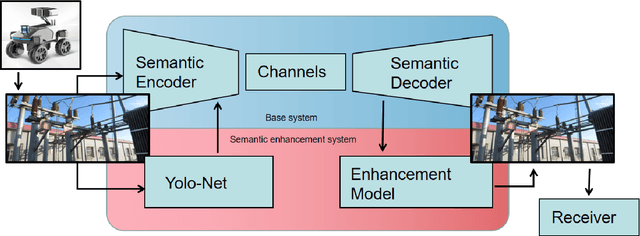

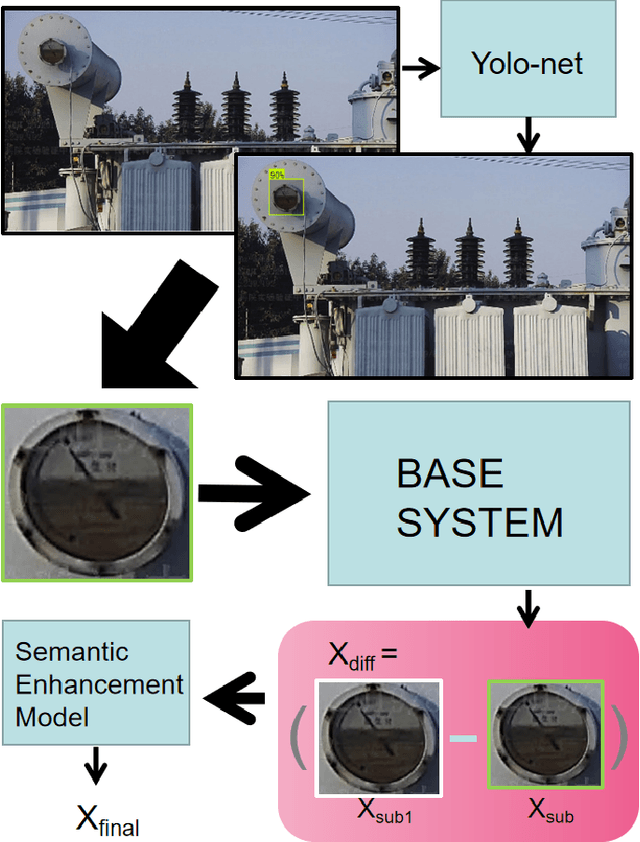
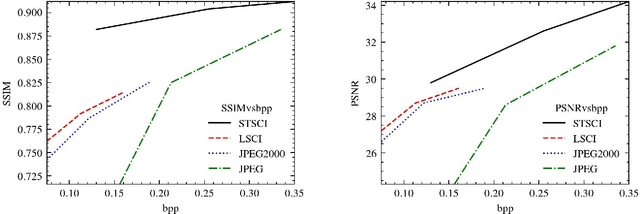
Abstract:Intelligent inspection robots are widely used in substation patrol inspection, which can help check potential safety hazards by patrolling the substation and sending back scene images. However, when patrolling some marginal areas with weak signal, the scene images cannot be sucessfully transmissted to be used for hidden danger elimination, which greatly reduces the quality of robots'daily work. To solve such problem, a Specific Task-oriented Semantic Communication System for Imag-STSCI is designed, which involves the semantic features extraction, transmission, restoration and enhancement to get clearer images sent by intelligent robots under weak signals. Inspired by that only some specific details of the image are needed in such substation patrol inspection task, we proposed a new paradigm of semantic enhancement in such specific task to ensure the clarity of key semantic information when facing a lower bit rate or a low signal-to-noise ratio situation. Across the reality-based simulation, experiments show our STSCI can generally surpass traditional image-compression-based and channel-codingbased or other semantic communication system in the substation patrol inspection task with a lower bit rate even under a low signal-to-noise ratio situation.
Mitigating barren plateaus of variational quantum eigensolvers
May 26, 2022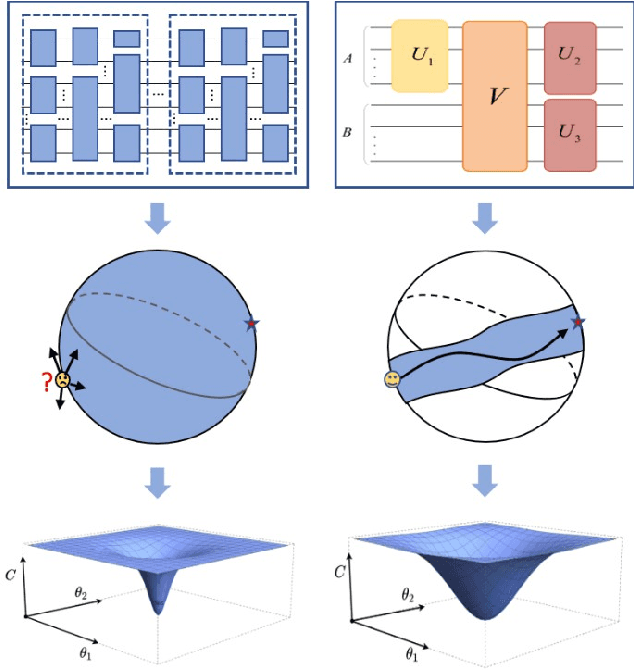
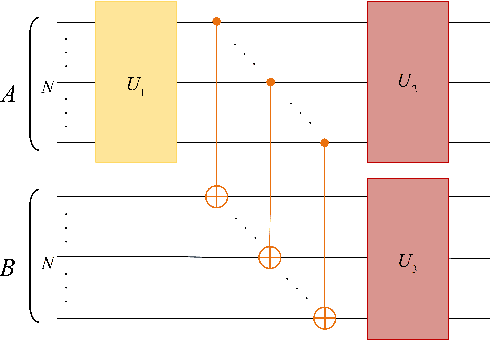
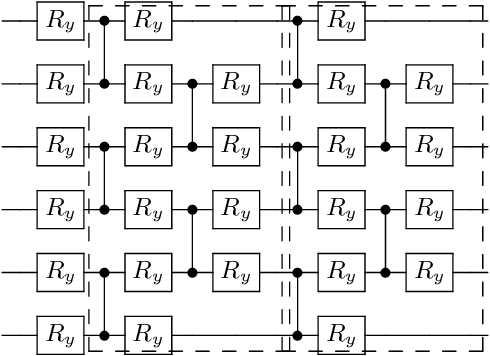
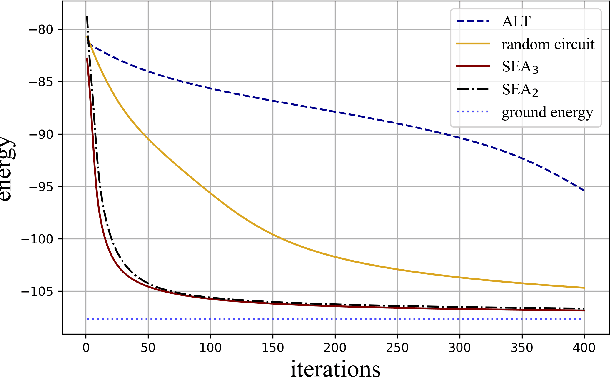
Abstract:Variational quantum algorithms (VQAs) are expected to establish valuable applications on near-term quantum computers. However, recent works have pointed out that the performance of VQAs greatly relies on the capability of the ansatzes and is seriously limited by optimization issues such as barren plateaus (i.e., vanishing gradients). This work proposes the state efficient ansatz (SEA) for accurate quantum dynamics simulations with improved trainability. First, we show that SEA can generate an arbitrary pure state with much fewer parameters than a universal ansatz, making it efficient for tasks like ground state estimation. It also has the flexibility in adjusting the entanglement of the prepared state, which could be applied to further improve the efficiency of simulating weak entanglement. Second, we show that SEA is not a unitary 2-design even if it has universal wavefunction expressibility and thus has great potential to improve the trainability by avoiding the zone of barren plateaus. We further investigate a plethora of examples in ground state estimation and notably obtain significant improvements in the variances of derivatives and the overall optimization behaviors. This result indicates that SEA can mitigate barren plateaus by sacrificing the redundant expressibility for the target problem.
Fundamental limitations on optimization in variational quantum algorithms
May 10, 2022
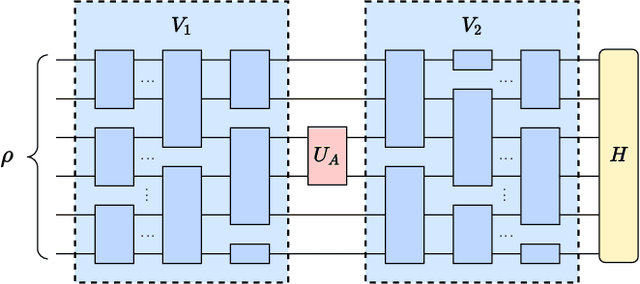
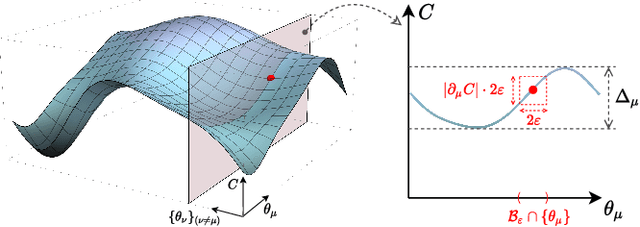
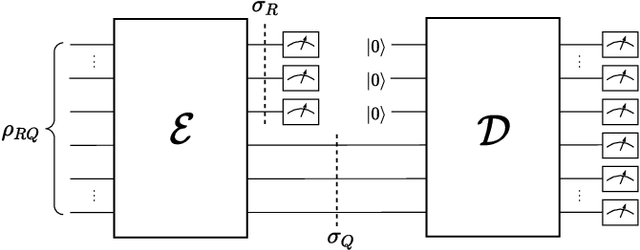
Abstract:Exploring quantum applications of near-term quantum devices is a rapidly growing field of quantum information science with both theoretical and practical interests. A leading paradigm to establish such near-term quantum applications is variational quantum algorithms (VQAs). These algorithms use a classical optimizer to train a parameterized quantum circuit to accomplish certain tasks, where the circuits are usually randomly initialized. In this work, we prove that for a broad class of such random circuits, the variation range of the cost function via adjusting any local quantum gate within the circuit vanishes exponentially in the number of qubits with a high probability. This result can unify the restrictions on gradient-based and gradient-free optimizations in a natural manner and reveal extra harsh constraints on the training landscapes of VQAs. Hence a fundamental limitation on the trainability of VQAs is unraveled, indicating the essence of the optimization hardness in the Hilbert space with exponential dimension. We further showcase the validity of our results with numerical simulations of representative VQAs. We believe that these results would deepen our understanding of the scalability of VQAs and shed light on the search for near-term quantum applications with advantages.
Machine-learning-enhanced time-of-flight mass spectrometry analysis
Oct 02, 2020



Abstract:Mass spectrometry is a widespread approach to work out what are the constituents of a material. Atoms and molecules are removed from the material and collected, and subsequently, a critical step is to infer their correct identities based from patterns formed in their mass-to-charge ratios and relative isotopic abundances. However, this identification step still mainly relies on individual user's expertise, making its standardization challenging, and hindering efficient data processing. Here, we introduce an approach that leverages modern machine learning technique to identify peak patterns in time-of-flight mass spectra within microseconds, outperforming human users without loss of accuracy. Our approach is cross-validated on mass spectra generated from different time-of-flight mass spectrometry(ToF-MS) techniques, offering the ToF-MS community an open-source, intelligent mass spectra analysis.
 Add to Chrome
Add to Chrome Add to Firefox
Add to Firefox Add to Edge
Add to Edge